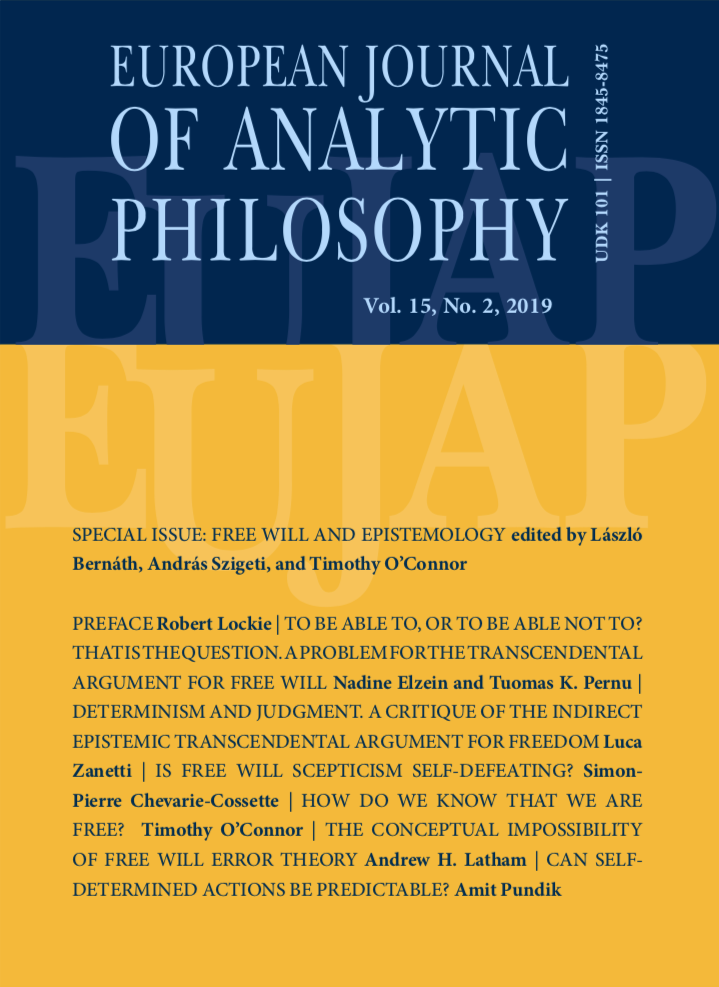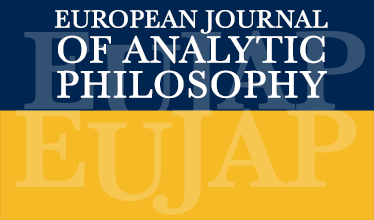Author Guidelines
Submitted manuscripts ought to:
- be unpublished, either completely or in their essential content, in English or other languages, and not under consideration for publication elsewhere;
- be approved by all co-Authors;
- contain citations and references to avoid plagiarism, self-plagiarism, and illegitimate duplication of texts, figures, etc. Moreover, Authors should obtain permission to use any third party images, figures and the like from the respective copyright holders. The pre-reviewing process includes screening for plagiarism and self-plagiarism by means of internet browsing and software Turnitin;
- include the DOI links to items in the reference list if available (see the DOI display guidelines at Crossref);
- include a word count at the beginning of the paper;
- be in a Word compatible format and submitted via our Open Journal System at this link;
- be prepared for blind refereeing: authors’ names and their institutional affiliations should not appear on the manuscript. Moreover, “identifiers” in document properties should be removed. Generally, there are two options for anonymizing references to ones own work: 1) Author X (2020) argues that (…); 2) In my previous work (Masked reference), I have argued (…). EuJAP encourages the authors who plan to submit their manuscript to use the former, third person, type of self-citation because it allows the reviewers to check the relevance, adequacy, accuracy, etc. of the references. However, if for some reason the prospective author(s) believe it would behoove them to use the second type of self-citation, they are allowed to do so provided that they offer a short explanation of this decision in the accompanying title page;
- be accompanied by a title page, that is, a separate file containing the title of the manuscript, word count, an abstract (not exceeding 300 words), keywords, academic affiliation and an email address for correspondence, and, if needed, a disclosure of the Authors’ potential conflict of interest that might affect the conclusions, interpretation, and evaluation of the relevant work under consideration;
- be in American or British English;
- be no longer than 9000 words, including references (for Original and Review Articles).
- be between 2000 and 5000 words, including footnotes and references (for Discussions and Critical notices)
We ask authors to submit only one manuscript at a time. A second submission by the same author is allowed only after a final decision has been made on their previously submitted manuscript.
Norms for publishing with AI
The Journal does not exclude the use of AI generated text. However, all authors (including reviewers and editors) take full responsibility for its factual accuracy and the proper acknowledgement of sources. In the acknowledgement section of your manuscript or the title page (depending on the submission/publication stage) or in other kind of reports you must identify the AI that was used, and the extent of the contribution. For instance, ChatGPT (version or the date when the AI was used).
The contribution level of the AI can be defined as follows:
- negligible – means the AI only made minor changes to the manuscript’s style or grammar (this includes using AI for copyediting and similar services);
- modest – means the AI made important suggestions but was not the primary driver of the research or had an essential role in writing the manuscript;
- substantial – means the AI made several crucial suggestions that shaped the research and the manuscript could not have been completed without it.
If the contribution of the AI is “negligible”, there is no requirement to mention its usage during the submission or review and publication processes. However, for any other level of contribution, it is expected that authors will report the extent of AI usage. In cases where the AI contribution is “substantial”, authors, reviewers, and editors should provide a comprehensive description of the AI usage and its contributions in a narrative format.
Initial submission
When first submitting a manuscript it is not required that the manuscript conforms to EuJAP’s style guidelines. Only after a manuscript has been accepted for publication we expect the authors to format the manuscript in accordance with EuJAP’s style guidelines.
Submitting revised manuscripts
When submitting a revised manuscript, please include also a separate document where it is explained how revisions were made in response to reviewers’ comments.
Policy for submitted manuscripts
If the submitted manuscript is authored by more than one person, there should be a brief explanation in the title page of the contribution of each Author with respect to the conception and design of the argument, study, etc. and writing of the paper.
Our goal is to maintain the double-blind review process. Nonetheless, we allow submitted versions of manuscripts to be deposited in open-access article repositories.
Review process
Papers are initially evaluated by handling editors, who determine whether the submission meets scholarly standards and falls within the scope of EuJAP. If a paper passes this initial evaluation and proceeds to external review, the following procedure applies: Papers are typically reviewed by two independent reviewers. To be accepted for publication, a paper must receive two positive reviews.
In cases of mixed reviews—for instance, if one review is positive and the other negative—the handling editor may decide to reject the paper. Alternatively, if the editor feels unable to make a decision based on the mixed reviews, they may seek a third review to break the tie. In such cases, the third reviewer is usually provided with the original review reports and asked to help the editor determine which evaluation holds more weight, considering the overall quality of the paper. If there are mixed reviews—such as one reviewer suggesting minor revisions and another suggesting major revisions—the submission will typically be treated as requiring major revisions.
The typical review process begins with a first round of reviews. If the reviewers recommend major or minor revisions, the revised manuscript will be sent back to the original reviewers for another round of evaluation. Typically, there will not be more than two rounds of reviews, meaning that a final decision about the manuscript will usually be reached after the second round.
For additional information on the reviewing process, see the instructions for reviewers.
Policy for accepted and published manuscripts
Accepted and published versions of the manuscript can be deposited in institutional or personal repositories without an embargo period. In case of published manuscripts, a link (with DOI) to the journal’s web pages and/or HRCAK should be added.
Malpractice statement
If the manuscript does not satisfy minimal scholarly requirements and it does not match the scope and aims of EuJAP, the Editors reserve the right to reject the manuscript without sending it out to external reviewers. Moreover, the Editors reserve the right to reject submissions that do not satisfy any of the previous conditions.
If, due to the authors’ failure to inform the Editors, already published material will appear in EuJAP, the Editors will report the authors’ unethical behaviour in the next issue and remove the publication from EuJAP web site and the repository HRCAK.
In any case, the Editors and the publisher will not be held legally responsible should there be any claims for compensation following from copyright infringements by the authors.
For additional comments, please see our Publication ethics. To get a sense of the review process and how the referee report ought to look like, the prospective Authors are directed to see the section For Referees.
Style
Accepted manuscripts should:
- follow the guidelines of the most recent Chicago Manual of Style (or check the latest issues of EuJAP)
- contain footnotes and no endnotes
- contain references in accordance with the author-date Chicago style, here illustrated (we have a preference for in-text references)
Book
T: (Nozick 1981, 203)
R: Nozick, Robert. 1981. Philosophical Explanations. Cambridge, Mass.: Harvard University Press.
Book with multiple authors
T: (Hirstein, Sifferd, and Fagan 2018, 100)
R: Hirstein, William, Katrina Sifferd, and Tyler Fagan. 2018. Responsible Brains: Neuroscience, Law, and Human Culpability. Cambridge, Massachusetts: The MIT Press.
Chapter or other part of a book
T: (Fumerton 2006, 77-9)
R: Fumerton, Richard. 2006. “The Epistemic Role of Testimony: Internalist and Externalist Perspectives.” In The Epistemology of Testimony, edited by Jennifer Lackey and Ernest Sosa, 77–91. Oxford: Oxford University Press. https://doi.org/10.1093/acprof:oso/9780199276011.003.0004.
Edited collections
T: (Lackey and Sosa 2006)
R: Lackey, Jennifer, and Ernest Sosa, eds. 2006. The Epistemology of Testimony. Oxford: Oxford University Press.
Article in a journal
T: (Skorupski 2010)
R: Skorupski, John. 2010. “Sentimentalism: Its Scope and Limits.” Ethical Theory and Moral Practice 13 (2): 125–36. https://doi.org/10.1007/s10677-009-9210-6.
Article with multiple authors in a journal
T: (Churchland and Sejnowski 1990)
R: Churchland, Patricia S., and Terrence J. Sejnowski. 1990. “Neural Representation and Neural Computation.” Philosophical Perspectives 4. https://doi.org/10.2307/2214198.
T: (Dardashti, Thébault, and Eric Winsberg 2017)
R: Dardashti, Radin, Karim P. Y. Thébault, and Eric Winsberg. 2017. “Confirmation via Analogue Simulation: What Dumb Holes Could Tell Us about Gravity.” The British Journal for the Philosophy of Science 68 (1): 55–89. https://doi.org/10.1093/bjps/axv010.
Website content
T: (Brandon 2008)
R: Brandon, Robert N. 2008. Natural Selection. The Stanford Encyclopedia of Philosophy. Edited by Edward N. Zalta. Accessed September 26, 2013. http://plato.stanford.edu/archives/fall2010/entries/natural-selection/.
Forthcoming
For all types of publications followed should be the above guideline style with exception of placing ‘forthcoming’ instead of date of publication. For example, in case of a book:
T: (Recanati forthcoming)
R: Recanati, François. forthcoming. Mental Files. Oxford: Oxford University Press.
Unpublished material
T: (Gödel 1951)
R: Gödel, Kurt. 1951. Some basic theorems on the foundations of mathematics and their philosophical implications. Unpublished manuscript, last modified August 3, 1951.
Final proofreading
Authors are responsible for correcting their proofs.


